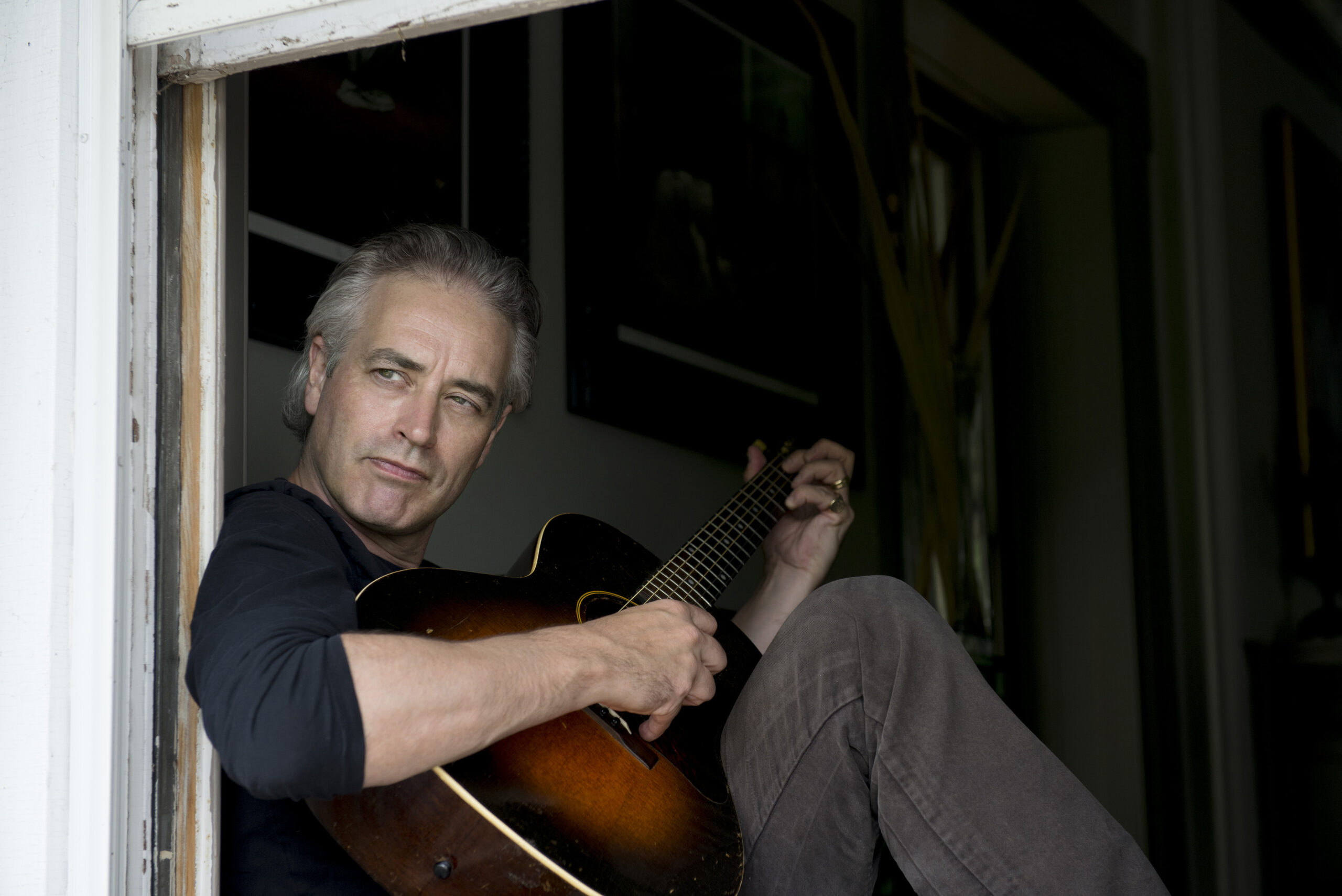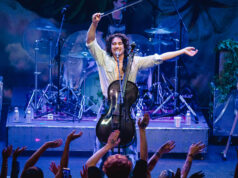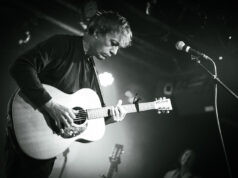Though he now lives in the States, Wesley Stace is quintessentially British, drawing on the folk music traditions of that land and displaying its particular brand of dry humor during his recent performance at Jammin Java.
Stace made his appearance on the international music scene in the late ’80s, going under the moniker of John Wesley Harding, which he borrowed the title of an album by Bob Dylan, who is one of his major influences.
(In “Bastard Son,” which he didn’t do, he calls himself the illegitimate son of Bob Dylan and Joan Baez. Take it from me, as someone distantly related to Bob, you don’t want any of these genes: Everyone in my family has a lot of problems.)
Wesley’s career got a major a boost when he opened for his one of his heroes, John Hiatt. Though a major label deal failed to result in a mainstream breakout, he consistently found critical success and acclaim for his work, beginning with his first studio album, 1989’s Here Comes The Groom.
At Jammin’ Java on Sept. 24, Wesley kicked off his set with the title cut from that album, followed by the next three tracks. “Cathy’s New Clown” obviously plays on “Cathy’s Clown” by the Everly Brothers, but reshapes it with the sort of wit more typical of Elvis Costello. “Spaced Cowgirl” is a bit of particularly British weirdness, while “Scared of Guns” is a protest song in the vein of his contemporary, Billy Bragg. Stace altered the lyrics to update the song to reflect events — especially mass shootings at schools — that have sadly become all too common in the decades since he originally wrote it. He prefaced the song by saying, “I decided this tour to only play in swing states,” which is clearly not true, as Virginia is not a swing state.
Watch Wesley Stace perform “Cathy’s New Clown” and “Scared of Guns” for VH1 in 1990 via YouTube:
Between songs, Wesley mentioned how he started his first tour in 1990 in Washington DC, playing the old 9:30 Club on the night that Mayor Marion Berry was arrested for crack. When he last played Jammin Java, his mother died the next day. “Let’s hope that doesn’t happen again,” he joked. After “I’m Scared of Guns,” he shared about how his son is the fifth generation of the Arsenal football club in his family.
Stace’s most recent album, 2021’s Late Style, finds him delving into jazz. “Where the Bands Are,” he said, “is all about backstages and the people who want to be in them and the people who don’t.” The next song he played, “Come Back Yesterday,” combines his love for The Partridge Family and his love of political protest lyrics. He then played two requests, “Still Photo” and “The Truth,” followed by “The World (And All Its Problems)” and “Congratulations (On Your Hallucinations).”
The lone song of the evening that wasn’t an original number was the traditional English folk ballad, “Little Musgrave.” Wesley told the audience that while the song is comforting if he plays it every night, it’s a challenge when he only does it on occasion. “Darwin” is a particularly folky number filled a bunch of different animals. “The People’s Drug,” he explained, was written in 1990, on the morning he arrived in DC, and discovered a store with that name. After finishing his main set, he came back to the stage to play “The Red Rose and the Briar.”
Though he didn’t mention it, Stace is also an accomplished writer of prose, having published several novels, the first of which won the James Tiptree Memorial Prize, which is given to a novel that treats issues of gender. It’s not surprising, as he’s always had a particularly clever way with words; before embarking on his musical career, he studied literature and political science at Cambridge, and was enrolled in doctoral studies. His songs combine this razor-sharp wit and talent for wordplay with a keen ear for a tune. Any fan of clever and literate songwriting owes it to themselves to listen to his work.






